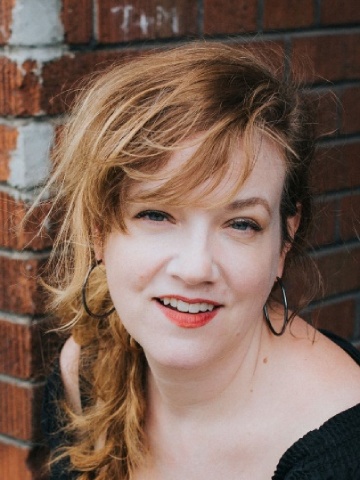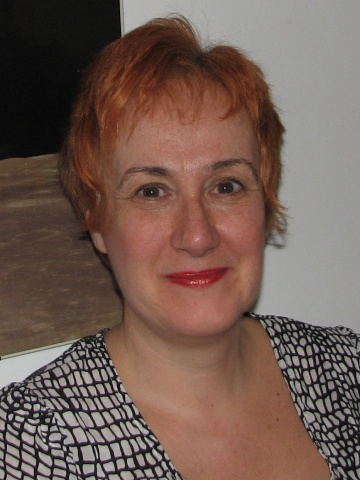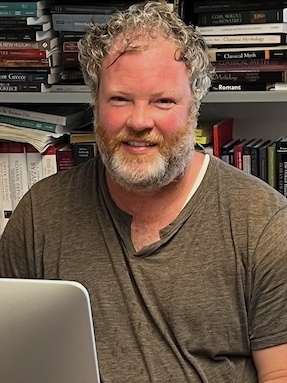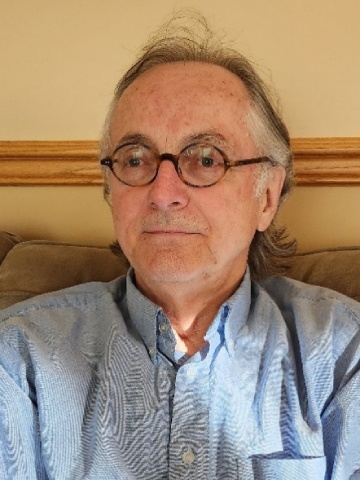Winter 2025 Courses
Winter course registration is now open!
 Instructor: Donna Linklater
Instructor: Donna Linklater
The “Mad” identity is a focus of interest in disability studies which seeks to question the dominant narrative of what modern society calls “mental illness”. This course will offer a new perspective of how culture and music can function as an expression of madness while providing paths to healing. We will explore the history of psychiatric patient activism, while also listening to the works of artists such as Nina Simone, Schumann, Sun Ra, and Iggy Pop.
Topics covered include:
- The historical timeline of Mad activism from the psychiatric patients’ liberation movement to the neurodiversity movement
- An introduction to the social model of disability
- How artists have used music as a tool of protest and societal disruption, with a special focus on jazz, punk, and hip hop.
- Mad sopranos: how madness is conveyed in opera
- How disability and music intersect and how disability arts has emerged as a new discipline
- The future of madness: how will our culture be shaped by current issues with mental health and the music industry?
Instructor biography:
Donna Linklater is a singer, songwriter, music instructor, and mother who was born in Winnipeg, Manitoba. She studied opera at Brandon University, and then moved to Toronto where she worked as a personal support worker, nanny, early childhood music instructor, peer support worker, and performed regularly as a singer and songwriter. She has also organized performance events for Mad Pride Toronto and CMHA Toronto West. As a musician, she has recorded two albums and has also collaborated with authors Susan Swan and Dave Bidini.
Donna has a Bachelor of Music with a major in applied voice from Brandon University, an ECE diploma from George Brown College, and a Bachelor of Arts with a major in disability studies from Toronto Metropolitan University.
| Class Schedule: | Location: |
|---|---|
| Monday, January 6, 1:30 – 3:30 p.m. | Thomas Sill Multi-Purpose Room |
| Monday, January 13, 1:30 – 3:30 p.m. | Thomas Sill Multi-Purpose Room |
| Monday, January 20, 1:30 – 3:30 p.m. | Thomas Sill Multi-Purpose Room |
| Monday, January 27, 1:30 – 3:30 p.m. | Thomas Sill Multi-Purpose Room |
| Monday, February 3, 1:30 – 3:30 p.m. | Thomas Sill Multi-Purpose Room |
| Monday, February 10, 1:30 – 3:30 p.m. | Thomas Sill Multi-Purpose Room |
 Instructor: Vesna Milosevic-Zdjelar
Instructor: Vesna Milosevic-Zdjelar
Astronomy is the study of the universe and all the matter and energy in it. It gives us a perspective on what it means to be here on Earth. It can help us locate ourselves in space and time. Once we realize how vast our universe is, it may seem humbling at first, but we can be proud of how much humans have understood in such a short time. Astronomy places us in the physical processes that govern the universe. Gravity and atoms work together to make stars, light the universe, generate energy, and create the chemical elements in our bodies. By learning astronomy, we can see how we fit into that cosmic process.
Although we are very small and human beings have existed in the universe for only a short time, we are an important part of something very large and very beautiful. We will look at how the various structures of the universe came to be. How did life on the Earth begin? Is there a likelihood of life elsewhere? All of these ideas will be considered from the point of view of the latest scientific developments.
Instructor biography:
Vesna Milosevic-Zdjelar, former astrophysicist from the National Observatory in Belgrade, Serbia, joined The University of Winnipeg's Physics Department in 2000. In Canada, she obtained a degree in science education, and has made important contributions teaching science courses to non-science and life sciences students, and creating community awareness by initiating science outreach programs. Together with two colleagues, she created a course "Concepts in Science" which became the preferred science course choice for education and arts students at the University of Winnipeg, with enrolment increasing tenfold. Vesna's passion for science education has led to numerous presentations at conferences and symposia for university instructors and science teachers. She teaches a broad range of courses including Astronomy, Cosmology, Concepts in Science, Physics for Life Sciences and Physics of Music.
| Class Schedule: | Location: |
|---|---|
| Wednesday, January 8, 1:30 – 3:30 p.m. | Thomas Sill Multi-Purpose Room |
| Wednesday, January 15, 1:30 – 3:30 p.m. | Thomas Sill Multi-Purpose Room |
| Wednesday, January 22, 1:30 – 3:30 p.m. | Thomas Sill Multi-Purpose Room |
| Wednesday, January 29, 1:30 – 3:30 p.m. | Thomas Sill Multi-Purpose Room |
| Wednesday, February 5, 1:30 – 3:30 p.m. | Thomas Sill Multi-Purpose Room |
| Wednesday, February 12, 1:30 – 3:30 p.m. | Thomas Sill Multi-Purpose Room |
 Instructor: Dr. Conor Whatley
Instructor: Dr. Conor Whatley
This course will provide an overview of many ways Greeks, Romans, and neighbouring peoples waged war. There will be a special emphasis on war experiences of soldiers, civilian and military families. The topics covered include:
Warfare in Archaic and Classical Greece, 600-404 BCE
- look at famed Greek hoplite and phalanx
- the use of DNA to learn more about who fought in ancient conflicts
Fourth Century Greece to the Wars of the Diadochi, 404-275 BCE
- Achaemenid Persian army
- what motivated Greek soldiers to fight
- rise of Macedon, Alexander the Great, and Thebes.
The Hellenistic Age and the Punic Wars 300-200 BCE.
- the rise of military science
- Roman naval combat
- Hannibal’s march across the Alps
- Roman infantry
From Warlords to Emperors, 200 BCE – 117 CE.
- Rome’s remarkable manpower potential
- Roman defeat at Kalkriese (Varus and his men
- victories over Boudicca in Britain
The Roman Empire, 117-284 CE
- Rome at war with Persia
- remarkable finds at Dura Europos
- conflict with the Palmyrene queen Zenobia.
The End of Antiquity and the Birth of the Medieval World, 284-641 CE.
- shift from a predominantly infantry army to a cavalry one
- impact of the Huns on Roman combat
Instructor biography:
Conor Whately is Professor of Classics at the University of Winnipeg. He got his BA (honours) and MA from McMaster (Hamilton) and PhD from Warwick (UK). He’s published widely on topics ranging from early Byzantine history writing to the Roman army in the Balkans and Jordan. He has also written books for a more general audience, including an introduction to the Roman Army published by Wiley, and a short sensory history of ancient combat published by Pen & Sword.
| Class Schedule: | Location: |
|---|---|
| Tuesday, February 25, 1:30 – 3:30 p.m. | Thomas Sill Multi-Purpose Room |
| Tuesday, March 4, 1:30 – 3:30 p.m. | Thomas Sill Multi-Purpose Room |
| Tuesday, March 11, 1:30 – 3:30 p.m. | Thomas Sill Multi-Purpose Room |
| Tuesday, March 18, 1:30 – 3:30 p.m. | Thomas Sill Multi-Purpose Room |
| Tuesday, March 25, 1:30 – 3:30 p.m. | Thomas Sill Multi-Purpose Room |
| Tuesday, April 1, 1:30 – 3:30 p.m. | Thomas Sill Multi-Purpose Room |
 Instructor: Dr. Ernest Keenes
Instructor: Dr. Ernest Keenes
The skepticism, cynicism, and even violence directed towards the institutions, processes and persons of politics are symptomatic of its obsolescence. This is a tragedy because politics is what makes possible modern civilized life. What if the core tragedy of the 21st century is that the price of surviving climate breakdown is authoritarianism? Of the many burdens borne by the generations to come in the twenty-first century, one is to recapture or to redefine politics fit for challenges resistant to the known limits and possibilities of political life.
- On the Meaning of Politics: Compromise and Decision, Public and Private
- Politics After All of the Gods have Died: The End of History, or the Last Man?
- The Social Bases of Politics: Interest/Value/Identity; Pluralism or “Tribalism”
- State and Government: Authority, Power, Legitimacy; Capacity and Instruments
- Message Sent, Message Received? Democracy, Parties and Elections, (anti-)Social Movements
- Conclusion: The old world is dying; a new world struggles to be born
Instructor biography:
Dr. Ernie Keenes is a retired journalist, academic and vigneron. He worked in radio and television news covering Winnipeg city hall and the Manitoba legislature, and as an editor and writer at the Canadian Press and Broadcast News. He worked as a researcher and writer in the government relations industry After earning a B.A. Honours degree in Political Studies at the University of Manitoba, he received his Master's and Ph.D. degrees in International Relations at Carleton University, specializing in Canadian Foreign Economic Policy and International Political Economy. He has published on International Relations theory and Canadian foreign economic policy management. He has taught a wide variety of courses in Politics at universities across Canada.
More recently he worked in wine retail, was on the roster of the British Columbia VQA tasting panel, and shared in an acre of vines and a small winery in B.C.'s Okanagan valley. He has worked as Deputy Editor of Harper's Wine and Spirit Gazette in London, U.K., and written a variety of articles on the wine industry as a freelance journalist.
| Class Schedule: | Location: |
|---|---|
| Wednesday, February 26, 1:30 – 3:30 p.m. | Thomas Sill Multi-Purpose Room |
| Wednesday, March 5, 1:30 – 3:30 p.m. | Thomas Sill Multi-Purpose Room |
| Wednesday, March 12, 1:30 – 3:30 p.m. | Thomas Sill Multi-Purpose Room |
| Wednesday, March 19, 1:30 – 3:30 p.m. | Thomas Sill Multi-Purpose Room |
| Wednesday, March 26, 1:30 – 3:30 p.m. | Thomas Sill Multi-Purpose Room |
| Wednesday, April 2, 1:30 – 3:30 p.m. | Thomas Sill Multi-Purpose Room |
